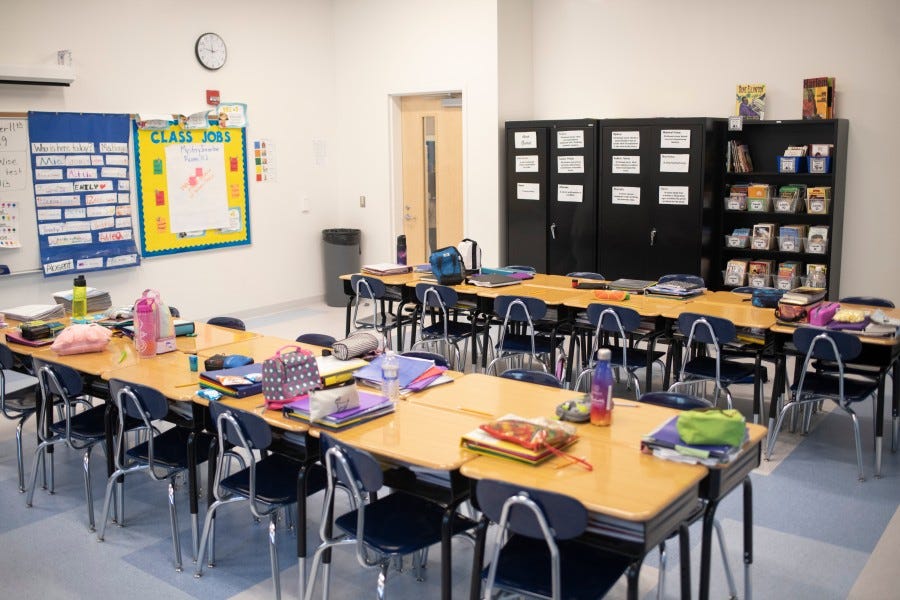End the Culture War on America’s Schools

Emerging from a particularly low period in American education, many kids across the country are woefully behind in basic math and language proficiency due to school shutdowns and shoddy remote learning, with students who were already having trouble and those in high-poverty schools suffering the worst academic outcomes. Getting these kids back on track—and making sure new students don’t fall into the same learning loss trap—should be the number one priority for educators, administrators, and concerned Americans regardless of their party preferences or personal belief systems.
The last thing America needs is more “grown-ups” using schools and kids as proxies in their never-ending political battles.
Unfortunately, this is not where we find ourselves today.
In school districts across the country—and in national education circles—parents, teachers, administrators, outside groups, and politicians are at each other’s throats over competing political ideologies in the schools rather than focusing their attention on the most pressing national need: Making sure all children learn the basics and emerge from school well prepared to be future workers, scientists, business leaders, public servants, military members, entrepreneurs, and good citizens.
The culture war fight over education is as dumb as it is useless. It should be clear to everyone by now that schools should not be used as a playground for left-wing social justice fads or right-wing reactionary politics. If partisan hacks and billionaire-funded ideologues want to fight one another over critical race theory, gender ideology, vaccines, religion, book bans, and skewed versions of American history, take it to Twitter, cable news, or some non-profit roundtable—and leave the schools and our kids alone.
Since the forces fueling the education culture wars are unlikely to fade into the background anytime soon, it will be up to common-sense Americans to offer a sane way out of this dead-end approach and focus public policy debates more on the urgent task of educating our children.
There are two primary principles worth stressing to help us get out of this mess in education:
1. No discrimination and ideology in America’s schools. Every student should be welcomed and respected at America’s schools regardless of their racial, gender, ethnic, religious, class, or family background. All students in America’s schools are equals and deserve to learn, grow, and work with others on common learning projects without discrimination. Students are not in school to serve as props for ideological battles of any kind. They are not to be divided into favored or unfavored status based on different backgrounds or the personal biases of administrators.
Equal dignity and fair treatment for all students in America’s schools is essential to a good education.
2. Teach the basics—reading, writing, math, science, and fact-based history. Schools are not the place to launch political crusades of any type. Schools are the place where kids of different backgrounds come together as peers to learn the basic foundations of human knowledge across multiple fields. Subjects should be taught at age-appropriate levels with a focus on mastering the fundamentals of reading, writing, math, and science before moving on to more advanced discussions of literature, social sciences, government, and history.
The primary goal of education, at a minimum, should be grade-level proficiency in math and English for every student in America. Schools must provide additional support and help for those who need it the most—including those with disabilities or other hardships—and provide opportunities for more advanced studies for any student ready and willing to do additional work. In high school, allow students to debate the major issues of American life freely and teach them to analyze complicated social, economic, and political issues based on common facts—not undisclosed ideological agendas.
Whether a student decides to enter college or pursue a trade or blue-collar occupation, they should finish school with the academic foundations necessary for success in life and work plus a basic understanding of American society and government necessary to be an effective citizen.
This seems like a reasonable objective for our schools that most American parents and educators believe in deep down, and that school administrators and policy makers should be able to pursue in practice.
For the sake of future generations, let’s end the culture war on America’s schools and focus on achieving these basic goals in all our schools.


